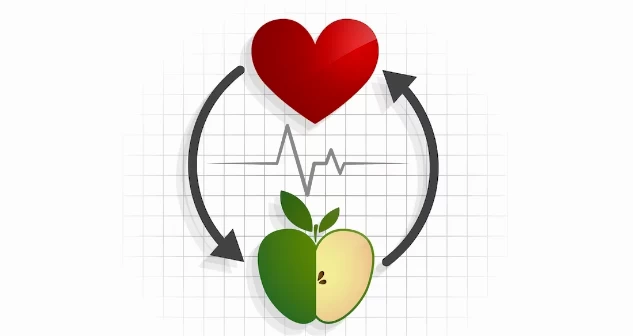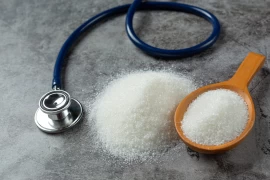
Secrets of a Healthy Life...
- Secrets of a Healthy Life...
- What Should We Do for the Proper Functioning of the Immune System?
- What is the Effect of Obesity on the Immune System?
- Is Gut Microbiota Important for Human Health?
- What Are the Important Vitamins and Minerals for the Functioning of the Immune System?
- What Does Antioxidant Mean and What is its Function?
- What are the Most Important Antioxidants in the Body?
Aging is an inevitable and natural phase of life. The importance of genetic factors in aging is real, but environmental factors play an even greater role. The aging process begins from birth and accelerates after the age of 30. Therefore, the lifestyle and habits we have from a young age play a decisive role in shaping our aging process.
Leading a healthy life and aging gracefully is a matter of choice and determination. While stopping aging completely is currently not possible, we can slow down our biological age compared to our chronological age by making small adjustments to our lives.
A robust immune system is essential for maintaining a healthy life. The immune system is a complex structure consisting of a range of organs, tissues, cell types, and molecules distributed throughout the body. Its purpose is to protect the body against any foreign substances or organisms that may threaten its integrity and health. Therefore, it is crucial to assist our immune system when it weakens for any reason or functions improperly, as diseases can arise when harmful substances cannot be neutralized. Supporting our body is equally important to prevent diseases.
What Should We Do for the Proper Functioning of the Immune System?
To ensure the proper functioning of the immune system, we can take the following important steps in our lives:
- Engaging in regular exercise,
- Avoiding harmful habits like smoking and alcohol consumption,
- Paying attention to adequate water intake,
- Maintaining cleanliness and hygiene,
- Learning how to cope with stress effectively,
- Prioritizing sufficient and quality sleep,
- Adopting a healthy and balanced diet,
- Taking antioxidant supplements.
What is the Effect of Obesity on the Immune System?
Obesity and its associated conditions are linked to impaired immunity and inflammatory responses. Energy restriction, without leading to malnutrition, can help prevent aging processes such as oxidative damage and insulin resistance. For the prevention of various health problems, especially cardiovascular diseases and diabetes, the Mediterranean Diet is recommended. The Mediterranean Diet includes whole grains, vegetables, low-glycemic-index fruits, legumes, nuts, olive oil, fish, etc.
Is Gut Microbiota Important for Human Health?
It is known that about 90% of the bacteria in the human body reside in the intestines. This also means that 80% of the immune system cells are found in the intestines. Therefore, taking care of our gut health is of utmost importance for the proper functioning of our immune system. We can take care of our gut health by incorporating prebiotics and probiotics into our diet.
Prebiotics consist of indigestible fibers that serve as food for beneficial bacteria in our intestines. Probiotics, on the other hand, are beneficial bacteria that promote healthy digestion and immune system in our intestines. Both prebiotics and probiotics can be consumed through foods or supplements. By doing so, we can increase the number of beneficial bacteria in our intestines, improving our overall health.

What Are the Important Vitamins and Minerals for the Functioning of the Immune System?
- Vitamin A
- B vitamins
- Vitamin C
- Vitamin D
- Vitamin E
- Folic acid
- Calcium
- Iron
- Potassium
- Selenium
- Zinc
What Does Antioxidant Mean and What is its Function?
Every cell in our body produces harmful byproducts while generating energy from nutrients. These byproducts are called reactive oxygen radicals. Additionally, harmful external factors (such as heavy metals, food additives, food contaminants, household cleaning products, etc.) can increase the production of these reactive oxygen radicals. If the body fails to neutralize harmful substances, diseases may develop. Molecules that fight against these harmful substances are called Antioxidants. They play a protective and supportive role in the body by shielding it from harmful free radicals.
What are the Most Important Antioxidants in the Body?
The most important antioxidants in the body are as follows:
- Glutathione: Known as the most powerful antioxidant in the body, glutathione plays a crucial role in combating free radicals and reducing oxidative stress within cells.
- Vitamin C (Ascorbic Acid): Vitamin C has antioxidant properties that contribute to strengthening the immune system, collagen production, and preventing cellular damage.
- Vitamin E (Tocopherol): Vitamin E protects cell membranes, reduces oxidative damage, and slows down cellular aging.
- Selenium: By being a part of the glutathione peroxidase enzyme structure, selenium supports the fight against free radicals.
- Carotenoids: Carotenoids like beta-carotene contribute to eye health and reducing oxidative stress.
- Flavonoids: Found in various plants, flavonoids offer health benefits by protecting cells with their antioxidant properties.
- Cysteine: As a crucial amino acid in glutathione synthesis, cysteine supports the functioning of enzymatic antioxidant systems in the body.
- Manganese: Serving as a building block for various enzymes, manganese provides antioxidant effects.
These antioxidants protect and support our body by combating free radicals, preserving cellular and tissue health. Balanced and healthy nutrition plays a crucial role in increasing antioxidant intake, allowing us to maintain a healthy lifestyle by incorporating antioxidant-rich foods into our diet.






